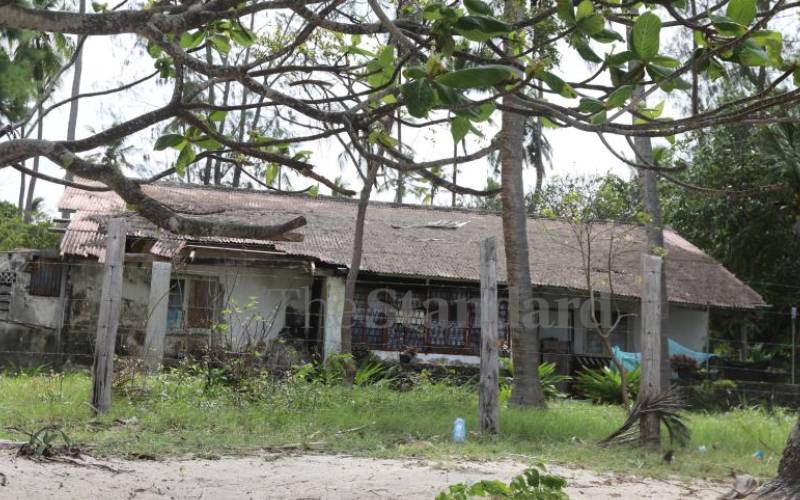×
The Standard e-Paper
Smart Minds Choose Us

The deserted Children’s Holiday Resort along Shelly Beach in Mombasa County. [Kelvin Karani, Standard]
Sun-bleached driftwood, piles of sediment and eroded bedrocks are left behind as the Indian Ocean ebbs at Shelly Beach, located on the mouth of Kilindini harbour, south of Mombasa.